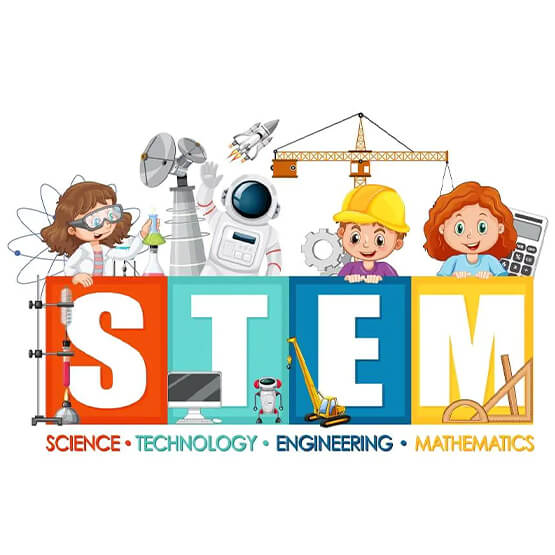STEM has emerged as a cornerstone of modern learning methodologies. But what is STEM education? STEM stands for Science, Technology, Engineering, and Mathematics – an integrated approach that fosters critical thinking, problem-solving, creativity, and collaboration among students.
STEM education integrates several disciplines to tackle real-world problems beyond conventional compartmentalized learning. It highlights how these topics are related and encourages students to use their knowledge creatively. Through practical applications, projects, and hands-on learning, students acquire critical analysis and cooperative problem-solving skills essential for success in the twenty-first century. Fundamentally, STEM education fosters innovation, flexibility, and intellectual curiosity. The programme prepares students for professions in STEM disciplines and other areas requiring technology literacy and analytical thinking.
In this blog post, we'll explore the profound impact of STEM education on shaping the careers of students and preparing them for the challenges of the future.
- Building a Strong Foundation: A strong basis in analytical abilities, scientific reasoning, and critical thinking is laid by STEM education. These abilities are fundamental to success in a variety of professions and are not just important in educational environments.
- Meeting the Demands of the Job Market: The need for people in STEM-related industries is growing as technology continues to progress. Students who receive a STEM education are better prepared to succeed in the dynamic labour market, where having a solid understanding of science and technology is becoming more and more valuable.
- Innovation and Creativity: Through encouraging unrestricted experimentation and inquiry, STEM education ignites creativity. Students get the confidence to innovate when they are encouraged to think outside the box and explore their ideas. This kind of thinking creates the groundwork for pioneers, entrepreneurs, and innovators in the future who can propel innovations across a range of industries
- Preparation for the Digital Age: STEM education gives students the digital literacy and technological skills needed for success as technology continues to transform every sector. To prepare them for a tech-savvy future, students become proficient users of digital tools, programming languages, and software applications.
- Global Competitiveness:Nations all across the globe understand how important STEM education is to preserving their competitiveness in the global economy. A country's workforce will stay at the forefront of technical breakthroughs if it invests in STEM education, which promotes economic growth and development.

However, there are advantages of STEM Education, and challenges are followed. A few challenges are the requirements of infrastructure, integration of technology, and gender disparities. There have been initiatives by the government such as Vigyan Jyoti and Vigyan Prasar. The Ministry of Science and Technology collaborated with IBM to improve STEM opportunities for girls. This collaboration targets meritorious girls in India And the partner IBM supported this initiative by reaching out to students and teachers in an interactive way. These policies and initiatives aim at fostering a scientific spirit in Indian youth and is a great help for Indian girls to pursue higher education and succeed in STEM career fields
Child Help Foundation with its crowdfunding partner Filaantro has always promoted girls' education, especially for underprivileged children. The organization strives for quality education and it has been helping many rural village families' children to have proper education with advanced technologies like practical labs, demo products and Smart Board facilities. The organization always wishes for a fruitful life for these children and a bright future. It also aims to provide more such facilities in future.
STEM education opens doors to a world of possibilities and has a major role in shaping future jobs. It is not merely a means of achieving academic achievement. In addition to learning formulae and facts, students studying STEM topics are developing abilities that will enable them to contribute to future breakthroughs and successfully negotiate the challenges of the labour market. Investing in STEM education now will pay dividends in future leaders, inventors, and problem solvers.
